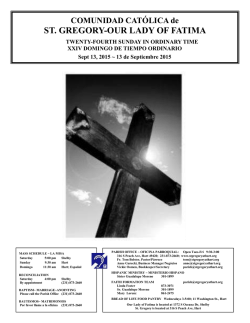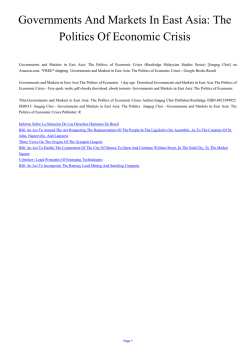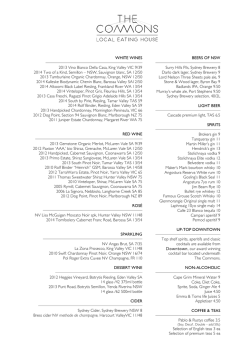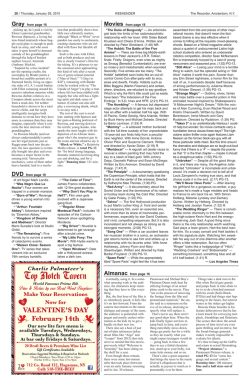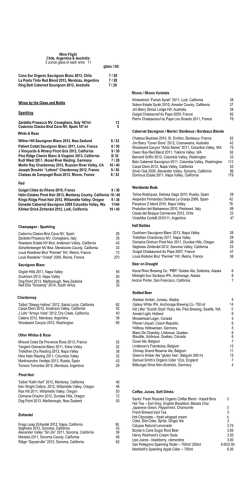
Professor Emeritus Henry C. Hart
University of Wisconsin Madison Faculty Document 2529 2 February 2015 Memorial Resolution of the Faculty of the University of Wisconsin-Madison on the Death of Professor Emeritus Henry C. Hart Emeritus Professor Henry Hart passed away on 12 November 2014, on the cusp of his 98th birthday. A gathering scheduled to celebrate the event was transformed into a memorial service at the Arboretum Visitor Center, attended by a large number of his friends and admirers. His long life began in Lucknow, India, where his father served as a YMCA Secretary. His birth and childhood in India foreshadowed his future academic career as a specialist on Indian politics and development. The family returned to their Tennessee home during his adolescence. He attended Vanderbilt University, graduating in 1936. His professional career began that year in an administrative post in the Tennessee Valley Authority, widely admired as a model of integrated planned public regional development, combining through its network of dams economic advance and social well-being for a large number of lower income families previously lacking access to the electricity grid. During World War II he was called to military service in the Army. Following his release, he enrolled for graduate study in political science at the University of Wisconsin in 1946, specializing in public administration, initially under the direction of John Gaus, then after his departure for Harvard University James McCamy. His TVA experience led him to focus his dissertation on what seemed at the time an even more ambitious application of the integrated regional development model, the Missouri Valley Authority. The thesis illuminated the difficulties of scaling up the TVA blueprint to cover a much larger and more complex region, which meant that its partial accomplishments fell well short of the initial vision. A revised version of the thesis was subsequently published in 1957 as The Dark Missouri. Hart was offered a faculty position as an Instructor in the Wisconsin Department of Political Science in 1948, one of only two postwar exceptions to the informal departmental rule against hiring its own graduates until they had established an academic record at another institution. On completion of his doctorate in 1950, he was advanced to Assistant Professor, then Associate Professor in 1955, and Professor in 1959. During the 1950s, Hart returned to India and South Asia as a central focus of his career, initially almost accidentally. Looking for a major post-dissertation research project, he initially intended to extend his focus on integrated river development in a comparative direction, by proposing a study of such plans in Colombia, South America. However, the Ford Foundation, then deeply committed to Indian development and attracted by his unique qualifications in integrated river valley regional projects, persuaded him to switch his focus to South Asia, offering funding for his research. His study of river valley schemes in India led to another major publication, New India’s Rivers (1956). He synthesized his work in the field in a 1961 volume, Administrative Aspects of River Valley Development. Within the Department, he was along with Leon Epstein and John Armstrong at the center of a movement to rebuild and reorient the subfield of comparative politics. He also was one of several young professors who sought to incorporate into Department staffing and instruction the new currents of behavioral orientation then sweeping the discipline. Although he was never entirely (continued) -2comfortable with the quantitative methods privileged by the advocates of the behavioral approach, he was supportive of making recruitment of young scholars adept with this methodology a priority. Particularly noteworthy was Hart’s contribution to the introduction of programmatic structures and instruction in South Asian studies. In tandem with Professor Murray Fowler of Linguistics, a Sanskrit scholar, Hart introduced in 1955 an innovative inter-disciplinary course on “The Civilization of India.” In 1959, two important new sources of financial support came into view. Then Vice-President (subsequently President) Fred Harvey Harrington lobbied tenaciously and successfully for the inclusion of public as well as private universities in a Ford Foundation major grant for the development of international area studies. At the same time, the National Defense Education Act was being passed, which promised substantial funding for third world language and area studies. Harrington called on Hart to prepare a South Asian area studies proposal with a strong social science component; the Rockefeller Foundation was already funding Hindi/Urdu and Telugu instruction. The Hart proposal did win federal support, and provided the means for creation of a South Asian area studies program, distinct from an existing Department of Indian Studies that focused upon language and culture. Hart over the years made a number of visits to India, both as visiting professor and researcher. At the same time, his teaching portfolio was varied, and covered a range of sub-discipline specializations: American political thought, development administration, comparative politics, as well as Indian politics. Henry and his spouse Virginia Hart (see her oral history in the faculty wives collection in University Archives) were active figures in community affairs. They were both leaders in the Dudgeon-Monroe Neighborhood Association, and active in the creation of the Group Health Cooperative. They were also skilled alpinists, climbing in the Himalayas and Andes until well into their 80s. The Hart hobby was carpentry, a highly developed skill. Henry was also an avid bicyclist, a passion pursued around the world and in all seasons. Those working in North Hall knew that the solitary bike parked in the bicycle rack on a frigid January day belonged to Henry Hart. Respectfully submitted by the Memorial Resolution Committee: Crawford Young, Chair Joseph Elder Edward Friedman Booth Fowler _________________________________________ UW-Madison Fac Doc 2529 — 2 February 2015
© Copyright 2026
